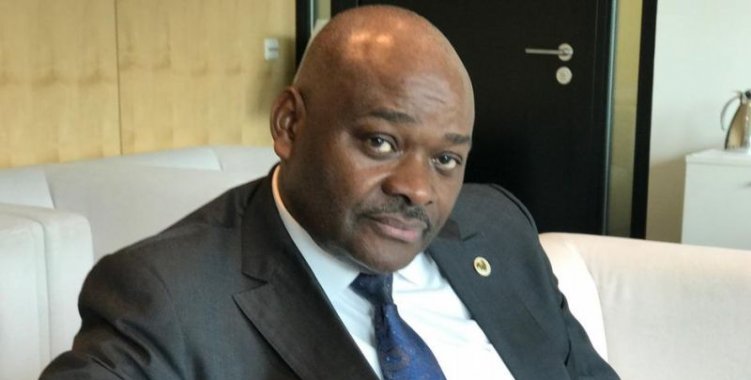Raul Danda, a deputy elected by the Cabinda constituency, spoke to the Lusa news agency on the sidelines of a press conference of UNITA's 'shadow government', in which he took office as prime minister, on the socio-economic situation and state of education in Angola.
The UNITA leader reacted to the military attacks announced in recent days by the Liberation Front of the Enclave of Cabinda (FLEC), which leads the armed conflict in that province geographically delimited by the Democratic Republic of Congo and the Atlantic Ocean, which will have resulted in several deaths.
"I think it's a real insanity to deny the existence of the conflict in Cabinda, it's an insanity to call it incidents, it's not incidents, there's a military conflict that occurs in Cabinda", said Raul Danda.
The proof of this conflict, he continued, has been shown by FLEC through "videos and announcing dates", including showing that "they are there in stone and lime, well dressed, well armed, and creating problems".
"Despite all that is hidden, if you look at the Military Hospital in Cabinda, the wounded, the dead - which it is possible to recover, because not everyone can recover, given the density of the forest - everyone passes through there, and in Cabinda people know", he reinforced.
He stressed that he has repeatedly said that the more the government postpones the debate on the situation, the more it radicalizes the spirits'.
For Raul Danda, the LFEC cannot be seen only as a political-military organisation today, "but the government needs to look at this LFEC with a sense".
"There are people who are in Cabinda, they are anywhere else, but they are from Cabinda, and they are not members of FLEC, they have no affiliation, no connection, to FLEC, and that is what we need to see," she said.
As for Portugal's role in this process, Raul Danda said it's "with a lot of hurt and sadness" that he looks to the Portuguese authorities.
"I once heard Dr. Barroso acknowledge the mistake he made when he associated himself with the attack on Iraq, and I thought with my own buttons, someday the Portuguese will also have to come and recognise the great failure they had in decolonising that country, that territory, and unfortunately they don't", he said.
According to the UNITA deputy, most of the Portuguese politicians "are those who at the time of opposition say many truths, but it is enough to come to power they are all aligned with the Government of the Cidade Alta [in Luanda, where the Presidential Palace is located] because of the money".
"Fortunately, they no longer have the money to corrupt or to buy consciences. I don't like to talk about Portuguese political power, it doesn't mean anything to me, it's not worth much," he said.
According to Raul Danda, the Government has to try to find a solution to that case, "otherwise it's playing a worse role than the Portuguese did".
"And I think it's a great lack of sense not to go there, because this is an inevitable thing, you're not going to be able to maintain that situation, no matter how much you lie. Because the lies have already been historical, they've already been used up - it's always saying that FLEC doesn't exist, but after two, three months, we're negotiating with FLEC", he stressed.
He said the UN acknowledged the organization's existence "when the LFEC responded, as one of 16 rebel organizations that responded positively to the UN Secretary General [António Guterres]'s call to temporarily stop military action because of covid-19".
Last week FLEC announced, in a "war communiqué" signed by brigadier general and spokesman for the General Staff of the Cabindan Armed Forces (FAC), António Rosário, the deaths of four soldiers of the Angolan Armed Forces, in clashes in that enclave, which also caused the deaths of six civilians and two of their combatants.
On Monday, the independence movement announced 11 more deaths, between civilians and military, and called for international mediation to find a peaceful solution to the conflict.
The FLEC, through its "armed arm", the FAC, fights for independence in the territory claiming that the enclave was a Portuguese protectorate, as established in the Treaty of Simulambuco, signed in 1885, and not part of Angolan territory.
Created in 1963, the independence organisation was divided and multiplied into different, ephemeral factions, with the FLEC/FAC remaining the only movement claiming to maintain an 'armed resistance' against the Luanda administration.
More than half of Angola's oil comes from this province.







